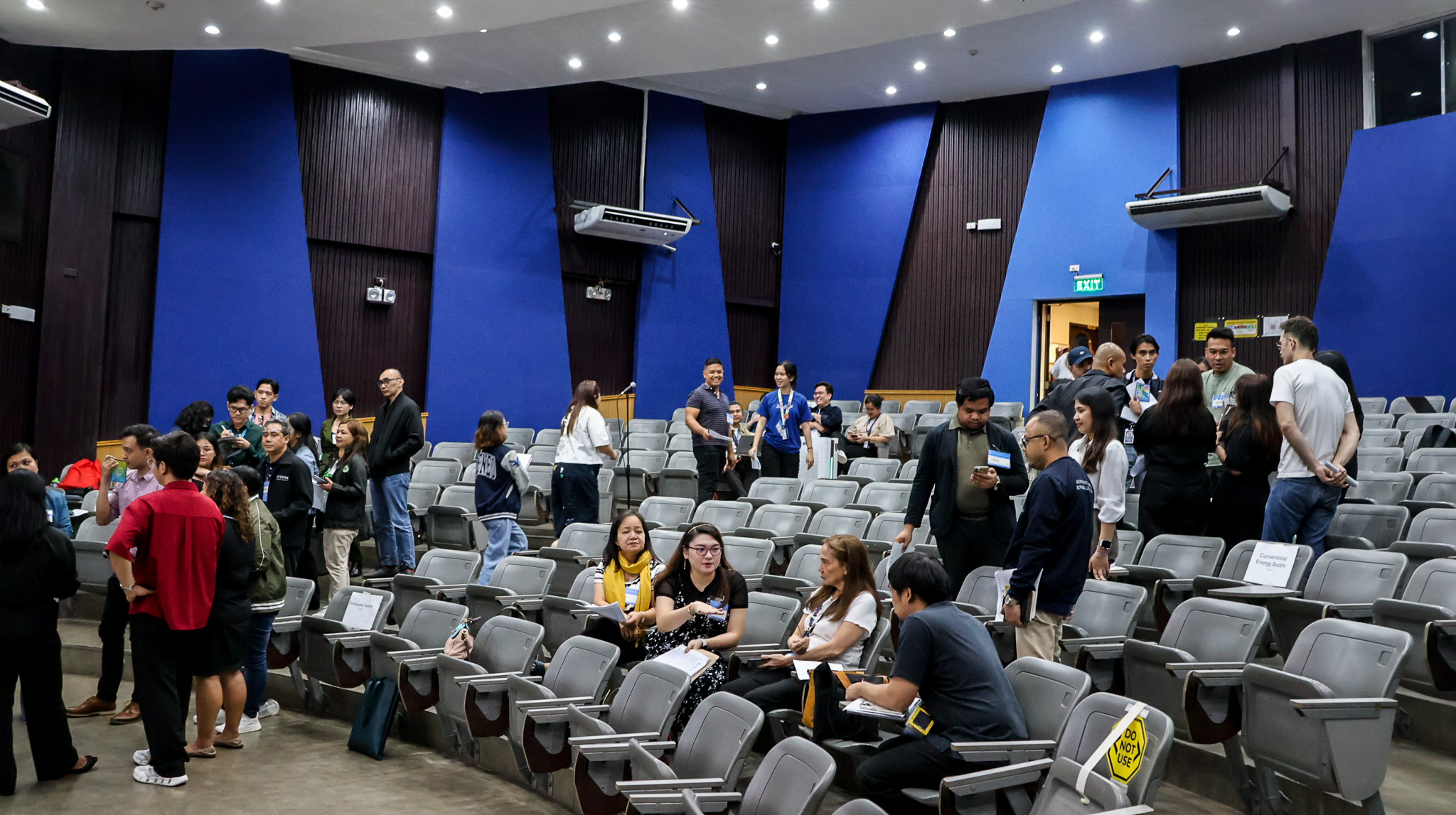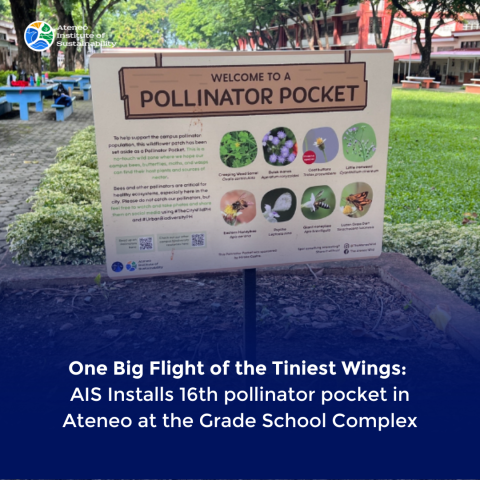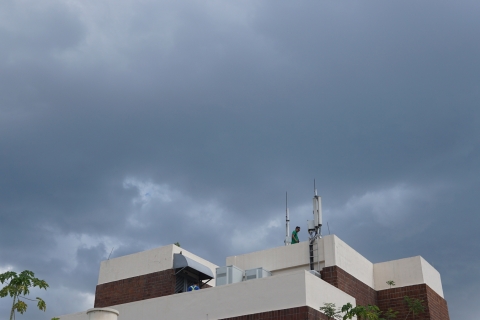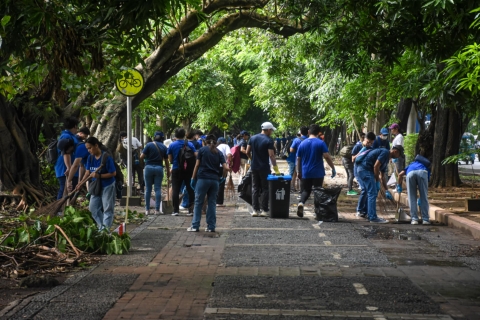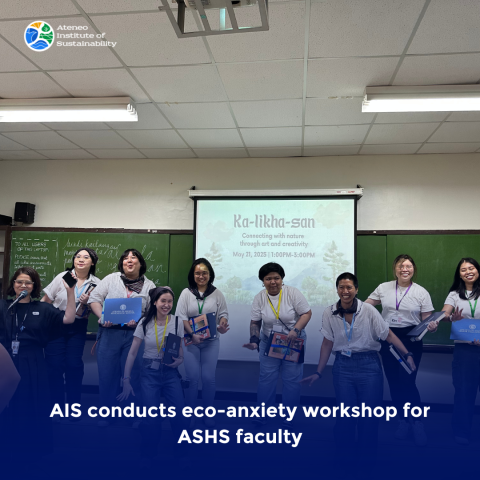AIS and MAD Travel host second iteration of immersive climate negotiation workshop
14 Apr 2025 | By Daniel C Ratilla and Ivy Geraldine Ferrer
On 08 April 2025, in celebration of Earth Month, the Ateneo Institute of Sustainability collaborated with Make a Difference (MAD) Travel to deliver an expanded climate negotiation workshop. Titled “Race to Zero: Bending the Curve,” the workshop expands on the pilot workshop held in September 2024, “Race to Zero: Transitions for a Low Carbon Economy.”
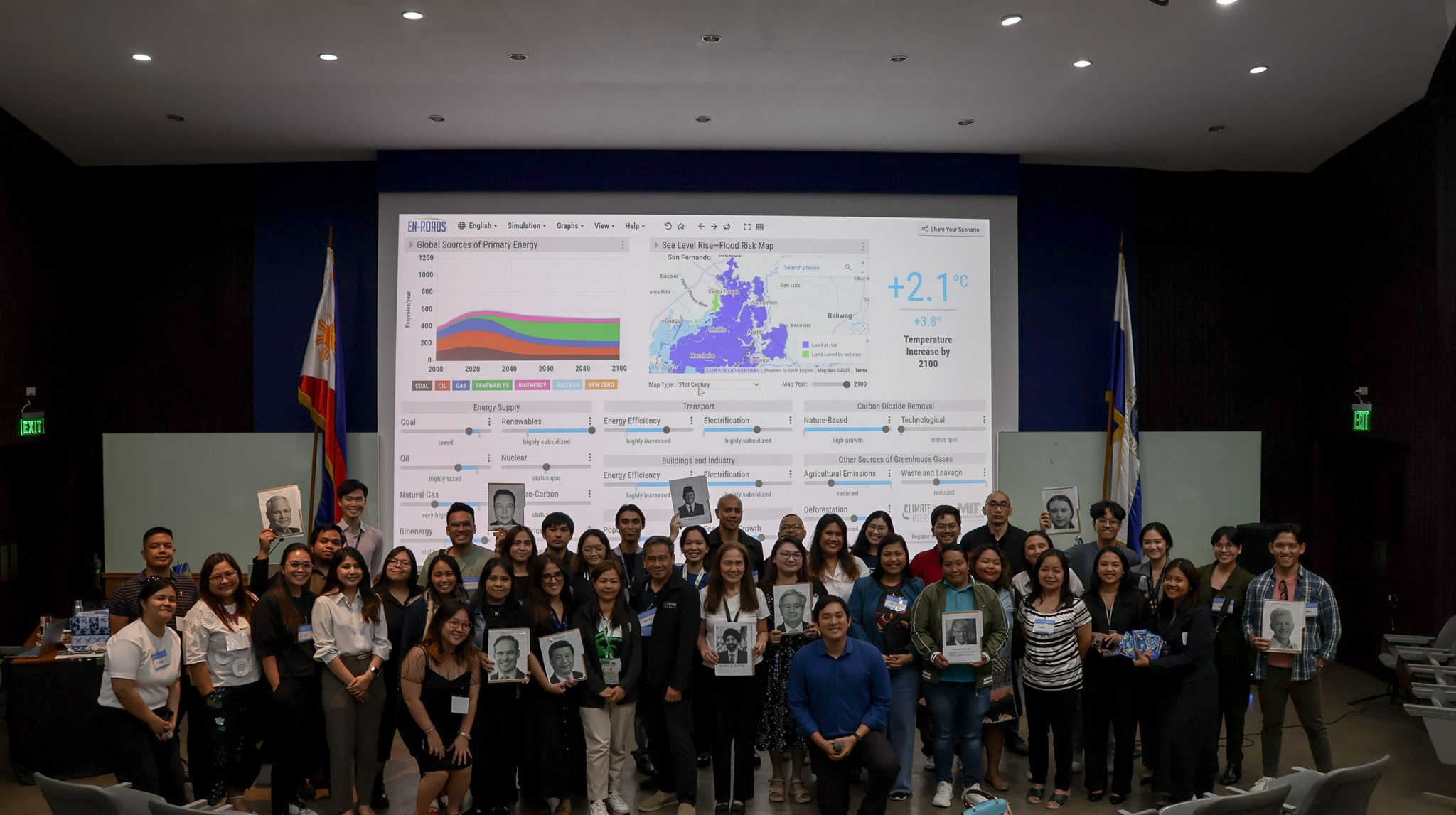
The workshop made use of the En-ROADS Climate Change simulator, a tool developed by Climate Interactive and MIT Sloan Sustainability Initiative. Participants consisted of members of the Ateneo community, as well as colleagues from partner organizations outside of the University. Participants were divided into nine groups, each mimicking real-world groups who participate in the annual COP (Conference of the Parties) process, where climate policies are negotiated.
Framed as a workshop that encourages both systems thinking and empathy, the session allowed participants to discuss and ponder different leverage points of climate action, while also reflecting on the interests of the groups they represented.

The workshop began with a lecturette delivered by Mr Daniel C Ratilla, Program Head for Climate and Disaster Resilience at the Ateneo Institute of Sustainability, and concurrent Focal Point of the My Climate Risk – Ateneo de Manila University (MCR-Ateneo) Regional Hub. The segment provided participants with a common understanding and contextualization of global climate change and its impacts, climate negotiations, as well as warming scenarios outlined in the Sixth Assessment Report (AR6) of the United Nations Intergovernmental Panel on Climate Change (IPCC). From the global context, Mr Rafael Dionisio, co-founder of MAD Travel, then described the local context by focusing on recent and projected climate impacts for the Philippines. This was followed by a brief introduction to the En-ROADS model, giving participants a glimpse into the different potential policies to bring down the simulated global temperature by the end of the century.
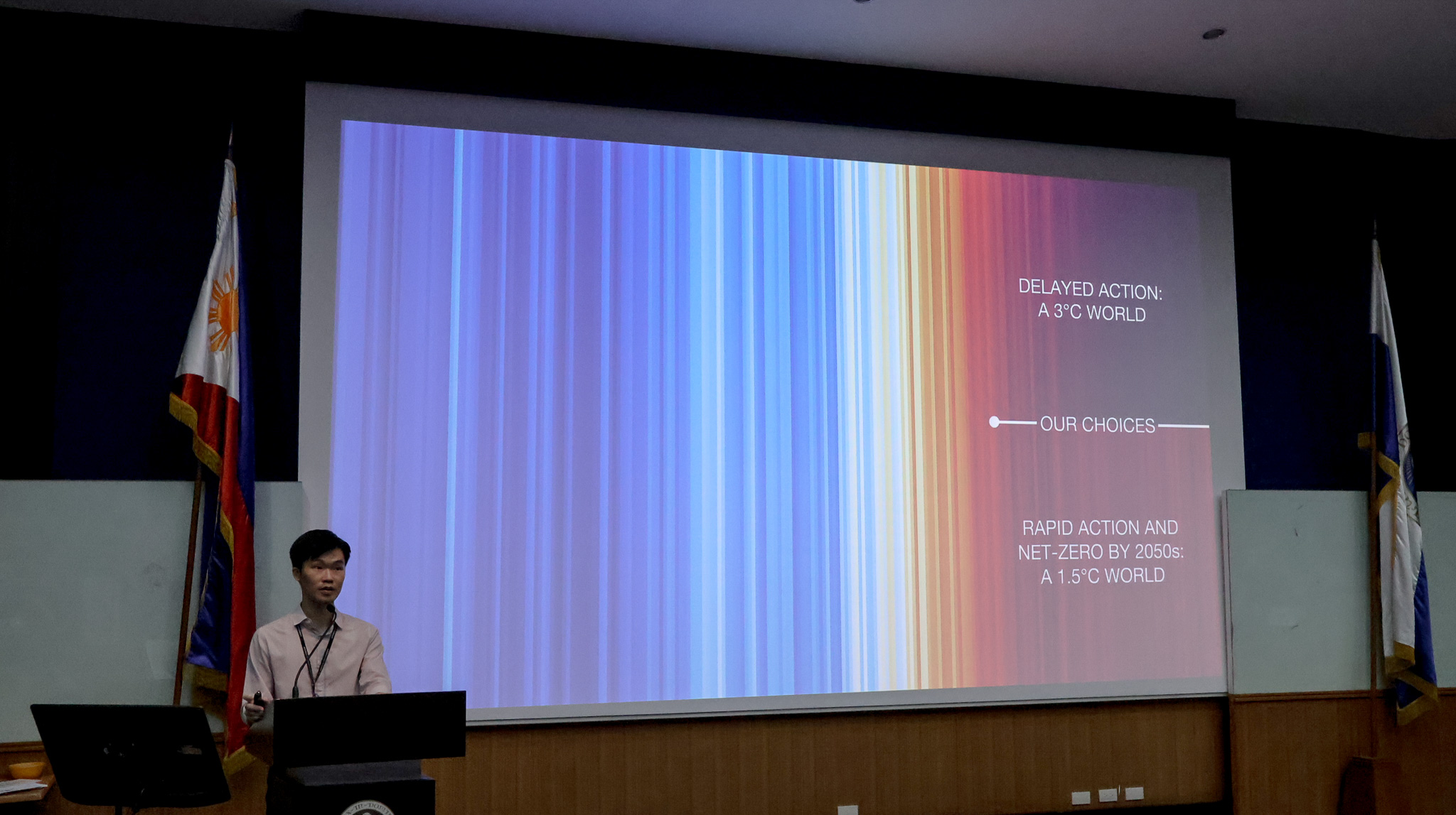
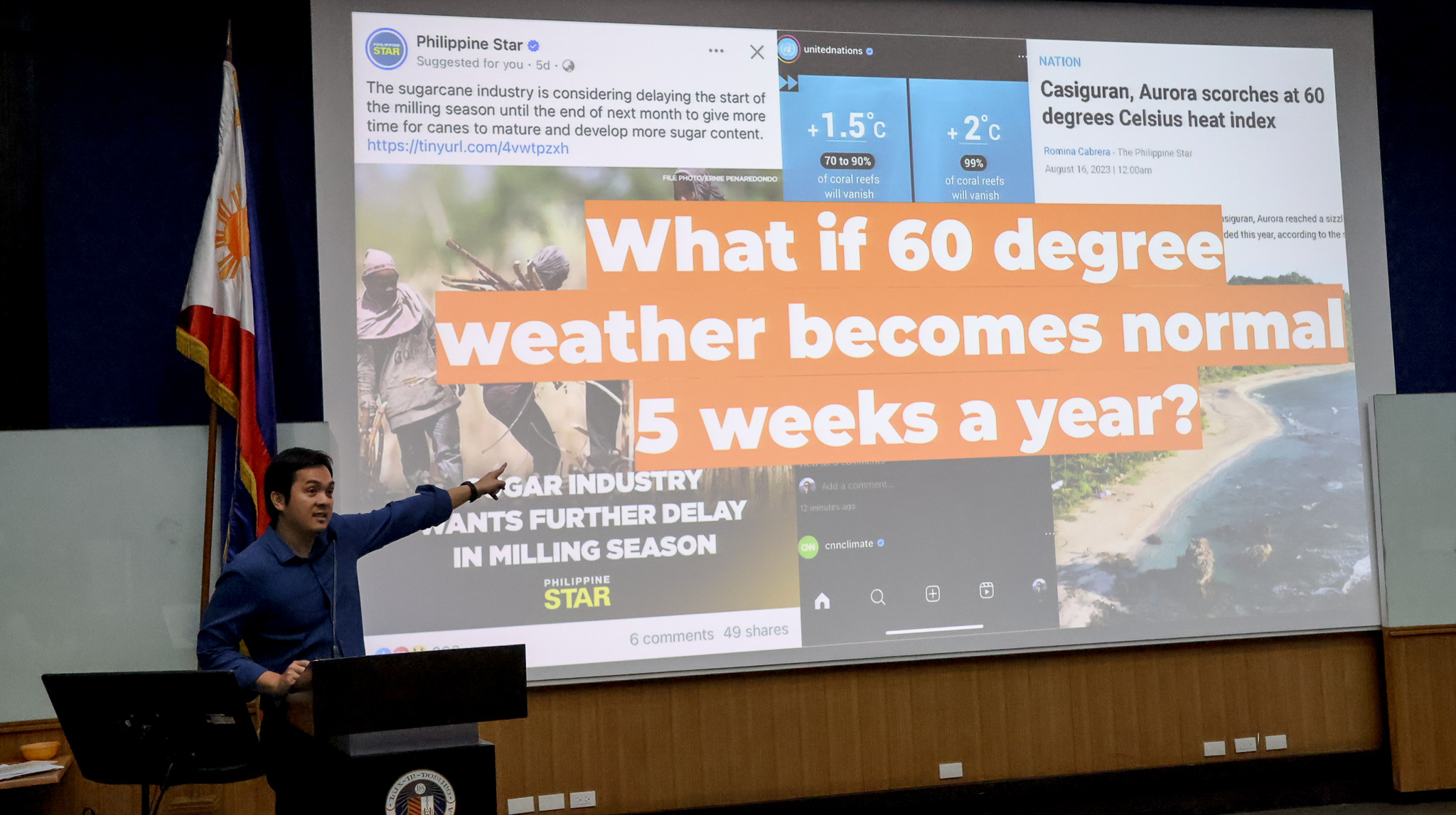
After being divided into the nine negotiation blocs and being given briefer notes of their embodied interests, the participants were tasked with lowering emissions to align with the goals of the Paris Agreement, which are to lower temperature increase to well below 2 degrees Celsius above pre-industrial levels. The session allowed for three rounds of negotiations among the nine blocs, with a sharing of commitments after each round, and letting these changes be reflected on the simulator, offering a glimpse into the effects of different policy shifts.
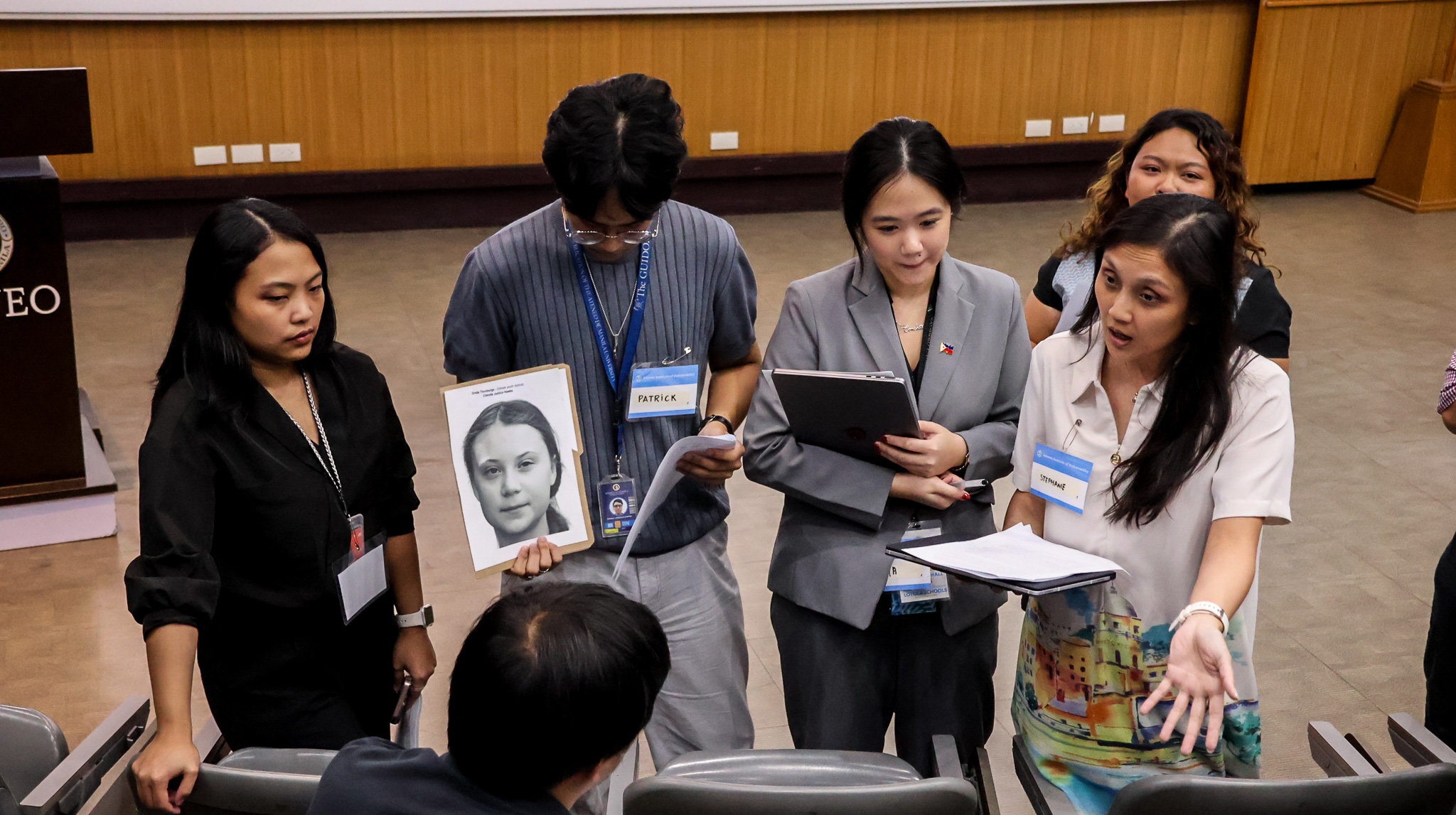
Building on the basic set-up of the workshop, the MCR-Ateneo Hub designed ‘action cards’ which mimic different disruptions, simulating unexpected turns of events during climate negotiations. They are designed to be “wildcards” which impact how groups may interact with each other. This immersive process hopes to mirror the relative inequality experienced by negotiating blocs during climate summits. The cards were illustrated by Christine Nicole Agbayani, an intern at the Ateneo Institute of Sustainability.

The workshop concluded with the blocs managing to reduce projected warming down from 3.3 degrees to 2.1 degrees above pre-industrial levels, falling short of the target of 2 degrees, but allowing participants to provide valuable insights into strategic decision-making, as well as effective methods of engaging with partners and stakeholders to align objectives and address shared challenges. Participants further reflected on the complexities inherent in real-life climate negotiations, emphasizing the need for substantial changes in order to achieve meaningful reductions in global temperatures. The discussions also highlighted the importance of coordinated strategies for significant climate impact.
Overall, the workshop served as a platform for cross-sectoral engagement to foster collaboration and agreement among different groups with a shared commitment to climate action. Through intensive negotiation simulations, participants gained practical experience in navigating the intricacies of global climate policy discourse.
